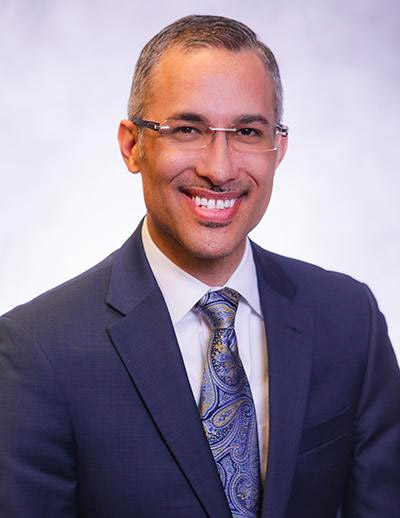Daniel Dawes, National Leader in Health Equity, Visits UArizona Health Sciences

Professor Daniel Dawes, a national leader in health equity and health policy, and author of the widely acclaimed book 'The Political Determinants of Health', will give a presentation on health equity, meet with health sciences leaders and students, and join a community reception in his honor.
The University of Arizona Health Sciences is pleased to welcome professor Daniel Dawes, JD, a national leader in health equity and health policy, and author of the widely acclaimed book The Political Determinants of Health, for a full day of engagement events for health sciences students and leadership, as well as the whole university community. Dawes, executive director of the Satcher Health Leadership Institute at Morehouse School of Medicine, will share his vision and strategies to build health equity nationally and globally.
Health Equity Presentation

Daniel Dawes, JD
Professor Dawes will give a presentation about the concepts formulated in his book, The Political Determinants of Health, from 10am to 11:30am on Wednesday, September 28 in the Health Sciences Innovation Building (HSIB), room 305. Everyone in the Health Sciences and university community are welcome to attend, and registration is required for both in-person and virtual attendance. Students are especially encouraged to attend. Free signed copies of Dawes’ book will be available on a first-come, first-served basis.
Community Reception
Professor Dawes will also join a community reception in his honor, open to all, that same day Wednesday, September 28, from 4pm to 7pm, in the Walkway of Wellness outside Drachman Hall on the Health Sciences campus. Students are especially encouraged to attend. Refreshments will be served and registration is required. If any copies of Dawes’ book are still available, they will be given away at the reception, first-come, first-served.
A National Leader in Health Equity
A widely respected health care and public health leader, health policy expert, educator and researcher who serves as a professor of health law, policy and management in the Department of Community Health and Preventive Medicine at Morehouse School of Medicine, Dawes has earned admiration as a nationally respected voice in the health equity movement. His scholarship and leadership, particularly the innovative political determinants of health framework that he pioneered, have resulted in policies and laws that prioritize health equity. By tackling upstream determinants of health, he has forged a new approach to address the intersection between equity and the social and political determinants of health, an approach crafted to change the course of domestic and global policies and improve health for millions.
Professor Dawes serves on the national advisory board of the Robert Wood Johnson Foundation, an important and prestigious health research funder. He also serves as an advisor to the White House COVID-19 Health Equity Task Force, and as a member of the CDC's Advisory Committee to the Director, where he co-chairs the CDC Health Equity working group. His influence on national health policy is extensive, and he played key roles in developing the Affordable Care Act, the Americans with Disabilities Act Amendments Act, the Mental Health Parity Act, and the Genetic Information Nondiscrimination Act.
Dawes’ groundbreaking works, 150 Years of ObamaCare, which document the health equity movement in America and elevates the health equity-focused provisions of the Affordable Care Act that he led in negotiations and formulation, and The Political Determinants of Health, which provides an in-depth look at the root causes of inequities, are now nationally and internationally recognized and used as top health policy books. Both books were published by Johns Hopkins Press. Dawes’ passion for addressing health inequities is exemplified in his unyielding commitment to building collaboratives, including the HHS grant-funded National COVID-19 Resiliency Network and the Health Equity Leadership & Exchange Network. Both networks exist to leverage evidence-based research and develop actionable solutions to advance health equity.
The Satcher Health Leadership Institute recently released a new report, The Economic Burden of Mental Health Inequities in the U.S, that identifies our national shortcomings when it comes to mental health as a public health issue. “Mental and behavioral health equity is health equity,” says Professor Dawes, “and if we are to ever achieve a more equitable tomorrow, then starting today, we must begin acknowledging, addressing, and alleviating the economic burden of mental and behavioral health inequities.”
Dawes talk, titled ‘The Political Determinants of Health,’ is presented by the University of Arizona Health Sciences Office of Equity, Diversity and Inclusion, the Mel and Enid Zuckerman College of Public (MEZCOPH), UArizona College of Medicine – Tucson Office of Diversity, Equity and Inclusion, UArizona College of Medicine – Phoenix Office of Equity, Diversity and Inclusion, the Arizona Area Health Education Centers (AzAHEC), the National REACH Coalition and the Center for Health Disparities Research.

